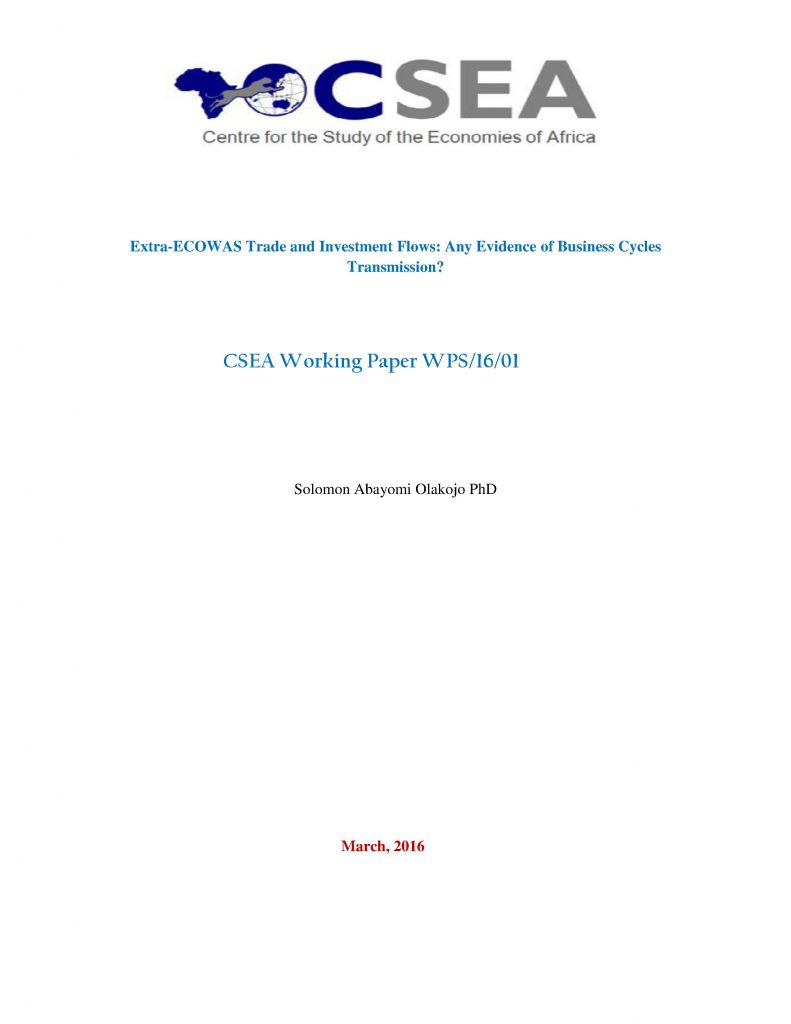Publications

July 26, 2016
Extra-ECOWAS Trade And Investment Flows: Any Evidence Of Business Cycles Transmission
This
study investigates the effects of merchandise trade and investment flows on the
transmission of business cycles between members of ECOWAS and the major trading
partnersbetween 1985 and 2014. Total trade and FDI significantly influence the
transmission of business cycles with elasticities of 1.1% and 0.7%,
respectively in the long run. There are little variations across the major
trading partners and other measures of trade flows. Intra-industry trade flows
with all partners, EU and USA influences the cross-country business cycles with
elasticities of 1.0%, 0.5% and 1.8%, respectively.
Related
Nigeria Economic Review
Global economic growth remained
fairly stable in 2016Q3 with baseline projections for global growth at 3.1 percent and 2.4
percent by International Monetary Fund (IMF) and the World Bank respectively.
Growth in developed countries was moderate but unevenly distributed: while the
U.S and the UK showed improvements, growth in other economies remained tepid.
Among emerging countries, India witnessed higher growth while growth in China
remained constant but the Chinese Yuan continued to appreciate. Given that
India is Nigerias major crude oil importer, improving economic conditions in
India may translate into rising demand for Nigerias crude oil. However, the
continuous appreciation of the Yuan poses significant inflationary threat in
Nigeria given the high level of imports from China. Subdued global demand, weak
trade, uncertainties in commodity prices and consequences of the Brexit were
the key constraining factors to growth over the period. In addition, growth in
Sub-Saharan African countries remained generally slow on the account of low
commodity price, political turmoil, and inconsistent government policies.
